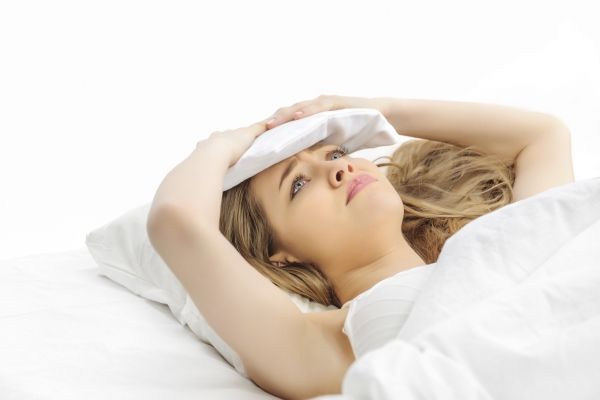Post updated on 29th July 2023
7 Factors that Make Women Sweating at Night
Imagine getting into your comfortable bed, covering yourself with the duvet, and falling asleep, just finding yourself completely soaked in sweating.
That is sad, isn’t it? Plus, it is also a bit frightening.
A number of times, sweating at night may be brought on by seemingly benign things, such as the level of warmth in your room or the material of which your sleepwear is made of. However, sweating at night might sometimes be a pointer to an underlying ailment that you have to look into as soon as possible. This is the opinion of Neomi Shah, professor of pulmonary plus sleep medicine.
The rule of thumb says that if you keep experiencing night sweats for over two to three months, you should consult your doctor, adds Neomi Shah. Before you begin imagining the worst situation, here are some common factors that lead to women sweating at night and practical solutions to this problem.
1- Your Bedroom Is Simply Too Hot
Have you ever wondered about the degree of warmth your bedroom has? If the temperature exceeds between sixty and seventy degrees Fahrenheit, it is mostly likely excessively hot, opines Christopher Winter, a sleep specialist.
Materials that do not let in the air, such as flannel nightwear, could also add to your problem of sweating in your sleep. Therefore, this makes it a better option to get bedsheets and night wears, made from cotton that lets in air.
Feeling too warm could further get in the way of your drifting off to sleep. This is because your body’s temperature starts to drop to lower degrees as you drift off. The human body could not perform this regular process in a hot room.
2- You Suffer From An Ailment That Causes Excessive Sweating
Of course, such a thing exists. It is called hyperhidrosis. Basically, it occurs when someone sweats too much, even while asleep. The major disparity between the regular kind of sweating and this condition, hyperhidrosis, affects only certain parts of the body, such as the underarms, palms, head, and feet. You should note, however, that this involves excess sweating and not just regular sweating. Medical experts say that it has the ability to get in the way of everyday activities, such as using a computer or turning a doorknob, for those who suffer from this ailment.
The dermatological academy in America called the AAD for short, recommends that you talk to a dermatologist if it seems you suffer from hyperhidrosis. The dermatologist could recommend certain types of deodorants or other types of treatment, such as injecting Botox into jammed sweat glands.
3- You May Just Be Having Nightmares
Occasionally, this is just the only reason you are experiencing night sweats. Dr. Harry Banshick says that if someone sweats chronically, sometimes it could be that a patient is completely healthy but is having frightening dreams in which he or she is probably being chased. The patient sweats as a result of enacting the dream.
Neomi Shah is in agreement with this. The expert says that anything that triggers the sympathetic surge,, also called the flight or fight response, could cause someone to sweat. Stress could be a major cause of night sweats. However, if you experience a constant, unrelenting nightmare, visit a doctor to ascertain the cause.
Read More: 10 Steps to Make Life Happier – Our Thoughts
4- You Could Be Having Hormonal Changes
One of the very commonplace roots of sweating at night is a fluctuation in estrogen levels, says Nandi. Hot flashes are asymptomatic of menopause; therefore, it is not unusual for women. It is common that women experiencing menopause to get excessive sweating while they sleep, adds Shah. Furthermore, if a woman is either on her period or pregnant, the hormonal ebbs and flows may cause sweating at night. All the same, menopause is more likely to lead to extremely continuous sweating. Shah suggests that you consult a doctor if this condition alters the quality of your sleep or your life.
He says that sweating as a result of menopause can be unpredictable. However, having a discussion with a gynecologist could lead to your undergoing therapy for hormone replacement which would help control your temperature.
5- Taking Antidepressants Could Be A Cause
People who take antidepressants would surely experience intensified sweating at night because some types of medication could lead to adrenergic reactions, according to Shah. Adrenergic reactions are connected with the levels of adrenaline, which cause sweating. Shah further says that someone who takes Venlafaxine and several other brand names like Effexor or Wellbutrin, Aplenzin and Zyban. These are all brand names for Bupropion and are likely to suffer additional sweating at night.
However, Shah adds that one can change the antidepressants one takes completely. He says that doctors could prescribe certain drugs that reduce the quantity of adrenaline produced by the body and would not conflict with a person’s needs for his or her mental health.
6- The Body Is Combating An Infection
Generally, infections are connected to variations in the temperature of the body because fevers accompany such infections. Therefore, it is a clear reason that many people experience night sweats.
An uncommon infection that is usually responsible for sweating at night is tuberculosis. This disease can contaminate any body part; however, it can have effects on the lungs. Shah adds that sufferers of diseases such as HIV, which put their immunity at risk, could be infected with tuberculosis very easily. According to him, if you start experiencing night sweats, consult your doctor as soon as possible if the signs continue.
Read More: How to Lose Weight after 45 Years?
7- You Could Have Undetected Lymphoma
Lymphoma is a type of cancer that affects parts of the human immune system. It has the ability to cause several symptoms. It might make a fluctuation in body weight, fever, and, of course, sweating at night. Basically, your body identifies lymphoma, treats it as an unwanted object, and has to combat it. Therefore, it increases the temperature in order to fight it off, says Shah.
Even though sweating profusely occurs in the night, sweating profusely may also happen in the daytime. Therefore, it is important to visit your doctor for tests. It will help to ascertain if you are actually suffering from lymphoma or having other symptoms, adds Neomi Shah.
Need Help or Advice in Academic Writing
See Samples
https://independent.academia.edu/shamsulIslam8
Need Help or Advice in Content Writing Management:
Would you like more advice? Do you have good practices to share? Express yourself in the comments. Also, if you want help in writing content to drive more traffic and boost conversions, please get in touch through Contact our team.
Do you want help writing quality content, driving traffic to your website, and boosting conversions? You can contact me through my Freelancer.com profile also. I always prefer to work through my Freelancer.com profile for smooth functioning. Here you pay safely and securely.
Read More:
HOW LONG DOES IT TAKE WATER TO REACH THE BLADDER?
HELPFUL COPYWRITING SKILLS TO MARK A DIFFERENCE
BAD MOOD, DEPRESSION… WHY IS SLEEP SO IMPORTANT?


Comments are closed.